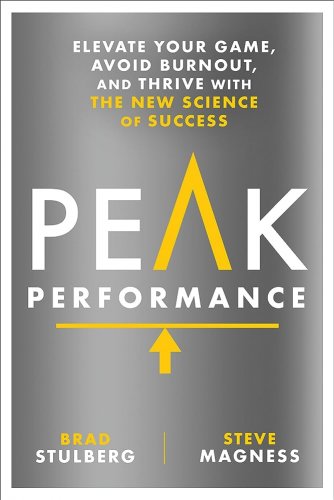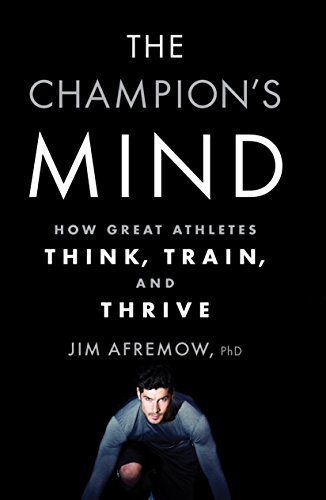Psychology of Running: How The Mind Affects Performance

Athletes who wish to reach their peak performance level need to be physically and mentally strong. This is especially true for endurance athletes.
The psychology of running is a genuine phenomenon that many individuals do not give adequate respect to.
While it is undoubtedly important to “do the work” regarding physical training and workout completion, that should not minimize how crucial it is to engage in mental training.
The Physical Piece
Most runners seeking to improve their athletic performance first focus on the physical aspects. Training programs carefully outline the weeks of running, strength training, and cross-training that should occur to be in the best position to have a successful race.
For example, marathon runners usually follow a training plan that lasts 16-20 weeks. Training sessions can be as simple as “run 5-7 miles today” or might lay out a speed workout of 800 or mile repeats.
On the one hand, these workouts help distance runners to get to peak physical fitness to enhance performance on race day. These workouts can also help hone the mental game of distance running.
What Is the Importance of Mental Toughness in Running?
Building mental toughness is critical when you want to enhance running performance. Elite runners engage in a multitude of activities to hone their mental skills.
How can psychological skills improve physical performance? How do you mentally push through a run?
Researchers at BMC Psychology have a lot to say on the topic.
So How Do You Mentally Push Through a Run?
1. Decision-Making
When an athlete’s body starts to struggle, there are both physical and mental results. Decision-making is impacted in that the athlete is most likely to default to what is familiar and comfortable when things get difficult. Training your brain is an effective method to circumvent, allowing stressors to lead to you changing your plan.
Creating a clear plan before you start the workout and sticking to it can help take decision-making out of the equation.
For example, what happens when the training gets hard if you set out to warm up for 2 miles, then run 6 x 1600 at a 5K pace? You might be tempted to run fewer mile repeats, slow down, or just quit.
Heading into the workout with a plan can help you to avoid this. If your goal is to finish each mile between 7:15-7:35, what do you do if you fail to reach that goal on the first one? The best plan is to recalibrate your expectation to 7:35-7:50.
If you go into the workout with a clear plan in place, you do not have to make that decision from a state of struggle.
Implementing other tactics, such as using a positive mantra, can also help you avoid this situation before it happens.
2. Positive Self Talk
One of the most common mental challenges for runners is that when the body starts to struggle, the brain can take over negatively. Positive self-talk goes way deeper than removing negative thoughts from your mind while training. Instead, athletes must act proactively to fill their brains with positive thoughts.
Whether you repeat positive mantras or write a visual reminder on your hand, this positive attitude often produces tangible results.
A basketball player might remind himself, “This is a shot I have made 100 times in practice,” when at the free throw line. A runner repeating “I am strong” repeatedly in the last moments before the finish line can help push negative energy away.
3. Pushing Past Mental Fatigue
Another aspect of sport psychology is to give the athlete the power to push past mental fatigue. The ability to keep pushing when the body starts to break down and hurt can be a catalyst that helps the runner ignore the voice telling them to slow down.
If the athlete practices this on training runs, that will translate into more tremendous success on race day.
4. Visualization
Visualization is a tactic that is employed by everyone from junior high runners to Olympic athletes. When you visualize yourself running stronger, faster, and longer, it becomes part of your expectation for yourself.
Sports psychologists encourage athletes to picture themselves being successful, which includes powering through workouts even once fatigue has set in.
Tools for Building Mental Toughness in Runners
Some tools for implementing mental toughness include reading books, listening to podcasts, and leaving positive signs and notes for yourself.
Books:
Reading about building mental strength can prove helpful for those who participate in endurance sports.
1. The Champion’s Mind: How Great Athletes Think, Train, and Thrive
2. Endurance Performance in Sport: Psychological Theory and Interventions

3. Peak Performance: Elevate Your Game, Avoid Burnout, and Thrive with the New Science of Success

Podcasts:
Some people prefer podcasts because they are not avid readers or can listen while driving, running, or engaging in other activities. Here are some excellent podcasts on the topic.
- Compete like a Champion — Dr. Larry Lauer and coach Johnny Parkes
- 80 Percent Mental — Dr. Pete Olusoga and Hugh Gilmore
- The Sport Psych Show – Don Abrahams
Positive YouTube Videos:
A simple Google search will net you hundreds of motivational speech videos. These speakers often do more than inspire. Listening to repeated words of encouragement can go a long way toward shifting your mindset.
Visual Reminders:
Filling your workout space with posters and signs with positive mantras is another way to boost yourself. What if you don’t have a personal gym?
It can be as simple as leaving yourself post-it notes on your mirror or putting a tag on your shoelace with a positive word to signal your shift in mindset.
The Goal: Find Ways to Be Mentally Tough in Running
We all face mental barriers. The key to success lies in how you approach these challenges. Taking small steps to help increase your mental bandwidth and facilitate your success will make a significant impact.
Find a book or podcast to dig into, pull up some YouTube videos, and leave sticky notes where they are likely to be seen.
Latest Articles
 Is Running on a Treadmill Easier Than Running Outside?Runners have their own preferences, whether it is treadmill running, running outside on the road, or exploring trails. So...
Is Running on a Treadmill Easier Than Running Outside?Runners have their own preferences, whether it is treadmill running, running outside on the road, or exploring trails. So... Is It OK to Use Trail Running Shoes on the Road?While trail running shoes can be used on roads, especially in situations where a runner encounters mixed terrains or pref...
Is It OK to Use Trail Running Shoes on the Road?While trail running shoes can be used on roads, especially in situations where a runner encounters mixed terrains or pref... How to Fix Sore Quads After Running?Rest, ice, gentle stretching, and over-the-counter pain relievers can help soothe sore quads after running. Also, ensure ...
How to Fix Sore Quads After Running?Rest, ice, gentle stretching, and over-the-counter pain relievers can help soothe sore quads after running. Also, ensure ... 10 Fruits With The Most Electrolytes to Replace Sports DrinksThese fruits are high in electrolytes such as potassium, magnesium, and calcium, essential for hydration, muscle function...
10 Fruits With The Most Electrolytes to Replace Sports DrinksThese fruits are high in electrolytes such as potassium, magnesium, and calcium, essential for hydration, muscle function...



